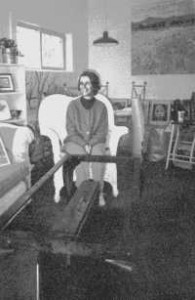Essay by Allen Best
Modern Life – December 2000 – Colorado Central Magazine
WHEN I WAS A KID, summer vacation wasn’t in spring, ski season didn’t start until it snowed, and presidents weren’t anointed until the votes were actually counted. Now, our society has fully caught the hurry-up bug, always jumpy to push the calendar.
Educators in Denver, Colorado, are sweating over whether to begin classes in mid-August. Starting school weeks before Labor Day would allow city students to compete against suburban kids for jobs in May. The suburbs, and nearly all other school districts in Colorado, are already on the hurry-up schedule.
But it’s not just schools, and not just Denver. Across the West, Halloween candy goes out sometime in September, and Christmas trinkets appear on store shelves long before Thanksgiving. In olden days, tree decorating was part of the Christmas Eve festivities; now Christmas trees get pitched at some houses the day after Christmas.
Snowmaking begins at two ski areas in Colorado in September, just a few days after the official end of summer. The ski runs at Loveland Basin opened Oct. 21 — ribbons of white set against a landscape of brown. As bizarre as that sounds, listen to this: Loveland makes twice as much money during the first three weeks of ski season as it does during the last three weeks. When Loveland closes in late April or early May, it’s for lack of customers, not snow.
At virtually every ski resort across the West the story is the same. During autumn, when snow is an anomaly, people want to ski, and so ski areas make snow while leaves are still turning gold, and they open for business before the World Series is even over. Come spring, and typically the deepest snowpacks of the year, the consuming public wants no part of it. That irony has environmentalists and marketing directors both scratching their heads.
At sporting arenas, it’s the same story. How many times, unless the game stays close, do the seats empty by the fourth-quarter? And how about business offices? Years of experience have made me leery of important business on Friday afternoons. Most of the workaday world has slipped home early. From schools to offices to arenas, we’ve become a three-quarter society.
Why do we collectively want to jump the calendar? In the case of schools, its not too hard to understand. Several years ago Colorado state government mandated testing of all students in publicly funded schools. The cumulative test scores for reading, writing, and mathematics have become the standard by how schools, and their teachers, are measured. Nobody wants an F, or even a merely average grade. The tests have become so all-important that in Denver, there was even talk about ending the school year after the tests. School is meaningless, apparently, once the tests are over.
BUT OTHER HURRY-UP HABITS are harder to fathom. Why do drivers on the street outside my house accelerate hard for three-quarters of a block only to jam on the brakes at the stop sign? Maybe leaden-feet, early skiing, October Christmas and even overly eager and errant election results all stem from a human tendency to want what you can’t have, and shrug off what you have in abundance.
Whatever the cause, I have this nagging fear that someday this jump-the-gun mentality will be more annoying to me than Rudolph the Red-Nosed Reindeer at Thanksgiving. My dream — a nightmare, really — is that I’ll get sick in the fall, and without the formality of actually waiting for my time, the undertakers will start stuffing me into a coffin.
“But I haven’t even died yet,” I will protest.
“Hey, it’s Friday,” they will tell me, “and we want to go skiing.”
Allen Best is a contributor to Writers on the Range, a service of High Country News (www.hcn.org). He lives in Arvada.

